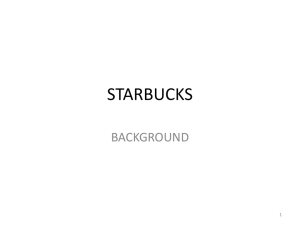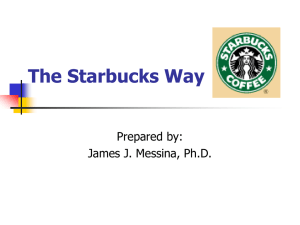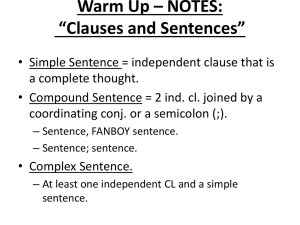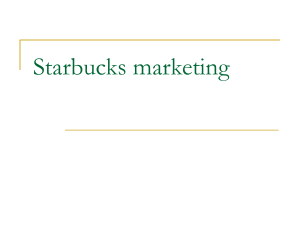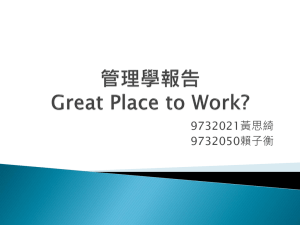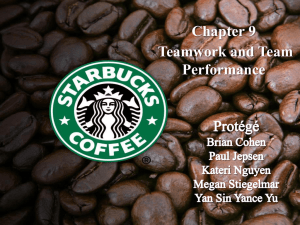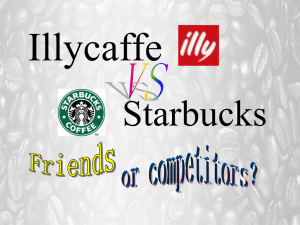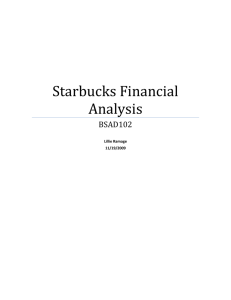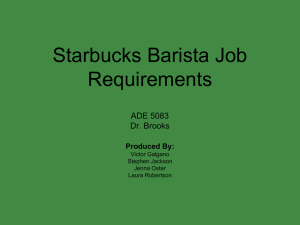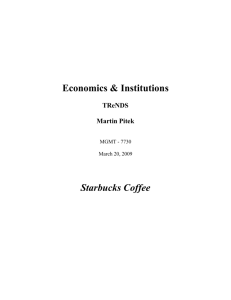Starbucks PEST and 5forces
advertisement
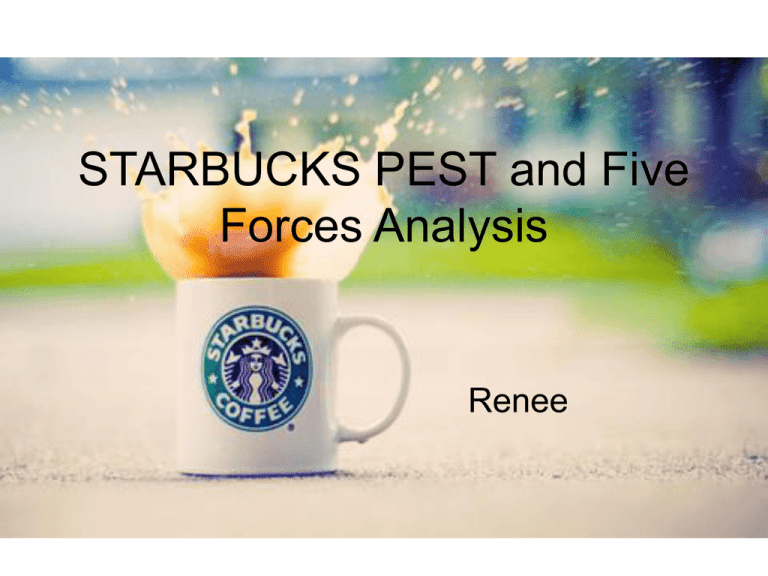
STARBUCKS PEST and Five Forces Analysis Renee STARBUCKS PEST and Five Forces Analysis Internal : Strength Weakness External : Opportunity Threat ↓ ↓ Marco (PEST) Micro (5 forces Starbucks Macro( PEST) What is PEST Analysis? PEST analysis is very important that an organization considers its environment before beginning the marketing process. In fact, environmental analysis should be continuous and feed all aspects of planning. The organization's marketing environment is made up from: Starbucks Macro( PEST) Political Factors: 1. Relationship between U.S and countries operating Starbucks or producing coffee beans 2.Industry-specific environmental regulations and Local government controls. Starbucks Macro( PEST) Economic Factors 1.Demand for foods and beverages. 2.Customer’s buying power. 3.Exchange rate and taxation. 4.Changes in disposable income could influence purchase levels. Starbucks Macro( PEST) Social Factors 1.Trend. 2.Consumer preferences 3.Changes in lifestyle and occupation. 4.Education. Starbucks Macro( PEST) Technological Factors 1. Biotech 生物科技 and agricultural development can be benefit for manufacture. 2. IT developments can improve globalization management. 3. Use of technology can improve operational efficiencies. Starbucks Micro (Five Force Analysis) Porter’s Five Forces represent theoretical framework that is used for industry analysis and strategy development. Specifically, the five forces shaping competition within the industry consist of the intensity of rivalry among the competitors, the risk of entry of new competitors, the bargaining power of buyers, bargaining power of suppliers and the threat of substitute products and services (Sinkovics and Ghauri, 2009). Starbucks Micro (Five Force Analysis) The threat of new entry. The threat of new entrants to the industry to compete with Starbucks is low, because the market is highly saturated饱和度 and substantial amount of financial resources associated with buildings and properties are required in order to enter into the industry. Starbucks Micro (Five Force Analysis) The power of buyers Starbucks customers not possess large amount of bargaining power because there is no and minimal switching cost for customers, and there is an abundance of offers available for them. So the power of buyers is low. Starbucks Micro (Five Force Analysis) The power of suppliers Starbucks suppliers have high bargaining power due to the fact that the demand for coffee is high in global level and coffee beans can be produced only in certain geographical areas. And for the coffee beans , above 50% from Latin America , 35% from the Pacific Rim, 15% from the East Africa. Moreover, the issues associated with African coffee producers being treated unfairly by multinational companies are being resolved with the efforts of various non-government organizations, and this is contributing to the increasing bargaining power of suppliers. So the power of suppliers is high . Starbucks Micro (Five Force Analysis) The threat of substitutes The threat of substitute products and services for Starbucks is substantial. Specifically, substitutes for Starbucks Coffee include tea, juices, soft drinks, water and energy drinks, whereas pubs and bars can be highlighted as substitute places for customers to meet someone and spend their times outside of home and work environments. Starbucks Micro (Five Force Analysis) Competitive Rivalry Same industries : Costa ,Caribou Coffee ,U.B.C coffee , small local coffee shops and cafes. Maxwell House ,NESCAFE , Other industries: Dunkin Donuts , Pizza Hut. Rivalry among existing competitors is high within the industry Starbucks operates in with major competitors like Costa, McDonald’s, Caribou Coffee, and Dunkin Donuts and thousands of small local coffee shops and cafes.


